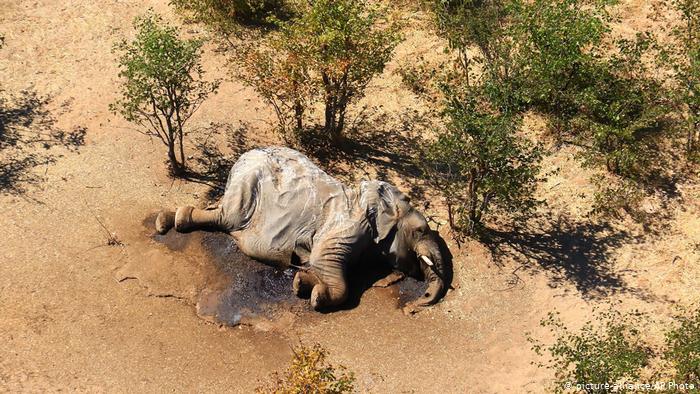
The question that has plagued animal advocates in southern Africa and elsewhere in the world for several months has been: why would dozens of elephants die in a region of Botswana’s Okavango Delta? Several leads had been raised, but the investigation carried out by the Botswana authorities, whose conclusions were presented on Monday, identified one culprit: a bacterium.
This bacterium is believed to be responsible for the death of 330 pachyderms between March and early July in Botswana. It is more exactly what is called cyanobacterium, a kind of microscopic but potentially dangerous blue-green algae.
Some are toxic to humans and animals when they multiply and, according to the Botswana Ministry of Wildlife and National Parks, this is what happened in the Okavango Delta. The elephants, used to the banks of water points that have become polluted, would have ingested too many of them and their nervous systems would have been attacked.
This is why some experts have raised the possibility of pure and simple poisoning, due to the sometimes difficult cohabitation between humans and elephants in a country which, with 130,000 individuals, is home to a third of African elephants. As for the hypothesis of poaching, it was excluded from the outset, since the elephants were found dead with their tusks.
If the cyanobacteria trail is confirmed, the research continues all the same, because we do not know the precise type of toxin at work and we do not know why it only kills elephants, and not the other numerous species that frequent this immense green and blue expanse of the Okavango. Attention will therefore be particularly heightened during the next rainy season.
According to specialists, the proliferation of this cyanobacterium has an origin: climate change. With the warming of the water, these bacteria find ideal conditions. As the IPCC, the Intergovernmental Panel on Climate Change, has already warned that temperatures are rising twice as fast in southern Africa as in the rest of the world, specialists fear that such incidents will increase. In fact, another case is being investigated in Zimbabwe, where 25 elephant corpses were recently found near a national park.
